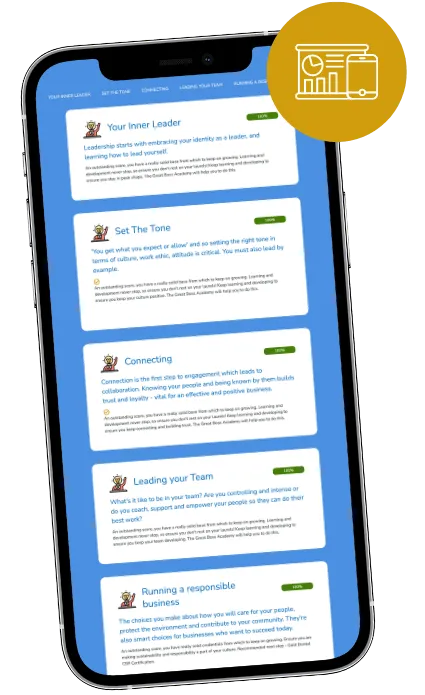
Why Your Team Won’t Work Together (And What to Do About It)
Does your team feel more like a group of strangers than a team?
✔ They stick to their own roles, but won’t help each other.
✔ They barely communicate.
✔ The practice feels disjointed.
It’s not just frustrating—it’s draining. You shouldn’t have to beg people to work as a team.
The Real Problem? Lack of Trust.
If your team feels more like a group of independent contractors than a cohesive unit, the real issue probably isn’t skill or willingness—it’s trust.
When people don’t work together, it’s usually because of one (or more) of these underlying issues:
They don’t feel valued.
People won’t go the extra mile for a team they feel invisible in. If they believe their contributions don’t matter—or worse, that their efforts are never noticed—they’ll do the bare minimum to get through the day.
Do you regularly acknowledge people for their contributions, beyond just ticking off tasks? Do they feel like their role is important to the overall success of the practice?
They don’t trust others to do their part.
Ever had a team member say something like, “It’s just easier if I do it myself”? That’s a red flag. When people believe their colleagues won’t follow through, they stop relying on them. Instead of teamwork, you get silos—everyone staying in their own lane, avoiding collaboration.
Reflection: Does your team have a history of dropped balls or inconsistent follow-through? How often do mistakes or miscommunications go unaddressed?
They’re too busy focusing on their own workload.
Let’s be honest—most dental teams aren’t sitting around twiddling their thumbs. If someone’s barely keeping their head above water, helping others isn’t top of the priority list. They’re thinking, “I have my own work to do—why should I step in?”
Does your team feel overwhelmed? Is everyone so busy they can’t help each other, or is it just a habit they’ve fallen into?
How to Get People Working Together (Without Forcing It)
Now that we know the root causes, let’s look at how to gently steer things in the right direction—without feeling like you’re herding cats.
✅ Praise teamwork, not just individual wins.
It’s easy to say “Great job!” to someone who finishes a task well. But if teamwork is the goal, then teamwork needs to be what gets recognised.
Instead of:
“Great job handling that patient!”
Try:
“That was great teamwork—loved seeing you and [colleague] work together to keep things moving.”
When people see that teamwork gets noticed and valued, they’ll start prioritising it more.
✅ Encourage small ‘micro-moments’ of collaboration.
Most people won’t suddenly become great team players overnight. The trick is to embed small moments of teamwork into daily routines, so it becomes second nature.
Instead of assigning help, ask for volunteers:
“Can you show [team member] how to do that?”
Try:
“Hey, who’s got a few minutes to run through this with [team member]?”
This tiny shift makes a huge difference—when people feel like they’re choosing to help, they engage far more than if it’s just another task handed down to them.
✅ Address unhelpful behaviour—gently.
There’s always that one person who prefers to work alone. And while independence is great, it can’t come at the cost of team cohesion.
If you notice someone always keeping to themselves, rather than calling them out, approach it with curiosity:
“You never help out the rest of the team.” (This just makes people defensive.)
Try:
“I’ve noticed you prefer to work alone. What would help you feel more comfortable collaborating?”
This opens up a conversation rather than a confrontation. Maybe they’re shy. Maybe they’ve had a bad experience in the past. Or maybe they just don’t realise how their behaviour is affecting the team.
Trust isn’t built in a day, and it definitely isn’t built through forced team-building exercises. It grows in the small moments—when people feel valued, when they know they can rely on each other, and when they feel safe enough to contribute.
The good news? You don’t need a grand plan. Just start shifting the way you talk about teamwork, and watch what happens.
Quick Links
Quick Links
Resources


Do you want to see how you're doing?
© great-boss.COM | ALL RIGHTS RESERVED | a purpose driven business programme | Membership T&C | PDB Ltd, The charmwood centre, southampton so40 2nr

